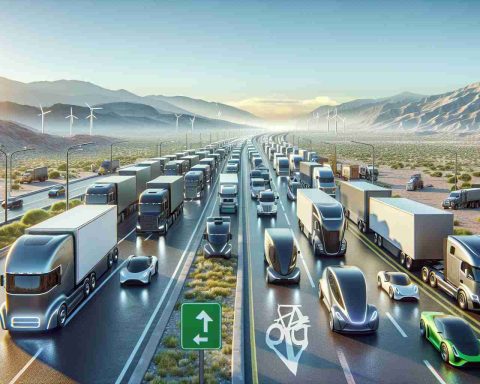In the rapidly evolving landscape of smart cities, few figures stand out as prominently as Jonas Cortes. As a visionary city planner and tech enthusiast from the Philippines, Cortes is pioneering new approaches to urban development, integrating cutting-edge technology to create future-ready cities.
Appointed as the mayor of Mandaue City, a crucial hub in the Cebu Metropolitan area, Cortes has used his tenure not just for traditional governance but as a platform for digital transformation. His administration has introduced a slew of technological innovations aimed at improving city life. Under his leadership, the city has rolled out an ambitious plan for smart traffic management systems that have significantly reduced congestion, making commuting more efficient for over 300,000 residents.
Cortes’s strategy is underpinned by a belief in technological inclusivity. He has collaborated with tech giants from Silicon Valley and local startups alike, especially in developing initiatives that integrate AI and IoT solutions to enhance public services. This includes real-time data analytics for disaster risk reduction and a comprehensive e-governance platform that has simplified and expedited bureaucratic processes, making the city government more transparent and accessible.
The impact of these initiatives is garnering international attention, with urban planners worldwide looking to Mandaue City as a model for sustainability and technological integration. As cities worldwide grapple with growth and climate challenges, Cortes’s work provides a blueprint for using technology to foster urban resilience and efficiency. This visionary approach is not just the future of Mandaue City—it could be the future of cities everywhere.
Revolutionizing Urban Living: Smart City Innovations Under Mayor Jonas Cortes
The dawn of smart city innovations under Mayor Jonas Cortes’s leadership in Mandaue City, Philippines, marks a significant shift in urban planning and technology integration worldwide. Cortes, who is redefining city governance, has set ambitious goals to transform Mandaue into a model smart city, attracting international praise and serving as a beacon of inspiration.
Features of Mandaue City’s Smart Initiatives
One of the most remarkable features of Cortes’s plan is the integration of smart traffic management systems. These systems have been pivotal in reducing traffic congestion and enhancing the efficiency of public transportation. By employing Internet of Things (IoT) devices and artificial intelligence (AI), the city now benefits from optimized traffic flow that saves time and reduces carbon emissions, directly contributing to a healthier urban environment.
Utilizing AI and IoT for Public Services
Mandaue City has become a regional leader in leveraging AI and IoT technologies to enhance public services. The introduction of real-time data analytics for disaster risk reduction plays a critical role in the city’s preparedness and response strategies. This initiative not only safeguards the community but also sets a precedent for other cities facing similar environmental challenges.
E-Governance: A Leap Towards Transparency
Cortes’s administration has embraced e-governance with the deployment of a comprehensive platform that streamlines bureaucratic procedures. This platform supports transparency by making information accessible and processes more efficient, thus reducing administrative overhead and fostering trust between citizens and their government.
Global Interest and Potential Collaboration
The transformative efforts in Mandaue City are drawing attention from global urban planners who view Cortes’s strategies as a foundational framework for future city planning. By fostering collaborations with both international tech giants and local startups, Mandaue City is poised to continue pioneering innovative solutions that could take smart city concepts to broader horizons.
Security Aspects and Sustainability
An often overlooked aspect of these advancements is how Cortes’s projects emphasize robust cybersecurity measures to protect the integrity of data and ensure the continuous safe operation of city-wide technological implementations. Additionally, these smart city measures align with sustainable development goals, aiming for long-term environmental, economic, and social sustainability.
Future Predictions and Insights
Looking forward, the trajectory of Mandaue City’s evolution under Cortes’s guidance offers promising predictions for other urban areas. The sustained focus on adaptable and inclusive technology points to a future where cities are not only more livable but also resilient and prepared for unforeseen challenges.
Through these groundbreaking initiatives, the influence of Jonas Cortes in the realm of smart cities is expanding, fueling a movement that has the potential to reshape urban living globally. For more information on smart city integrations and technological transformations, explore resources on Siemens.







